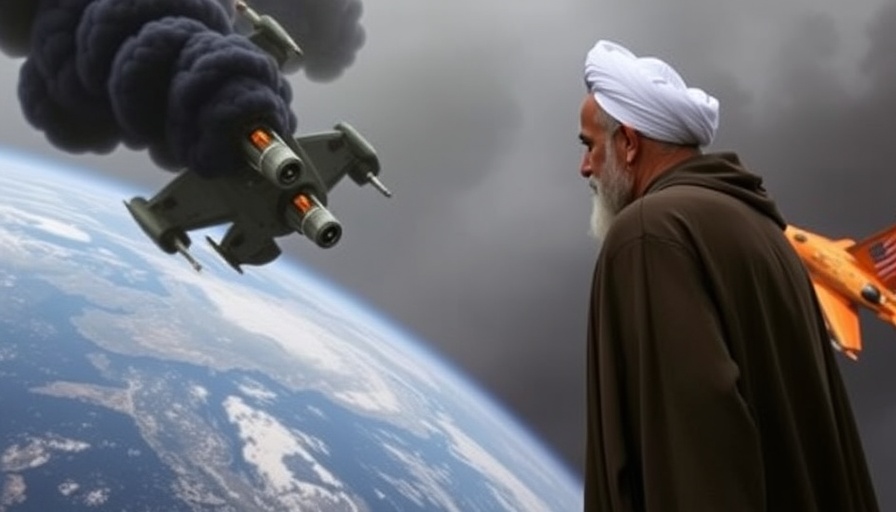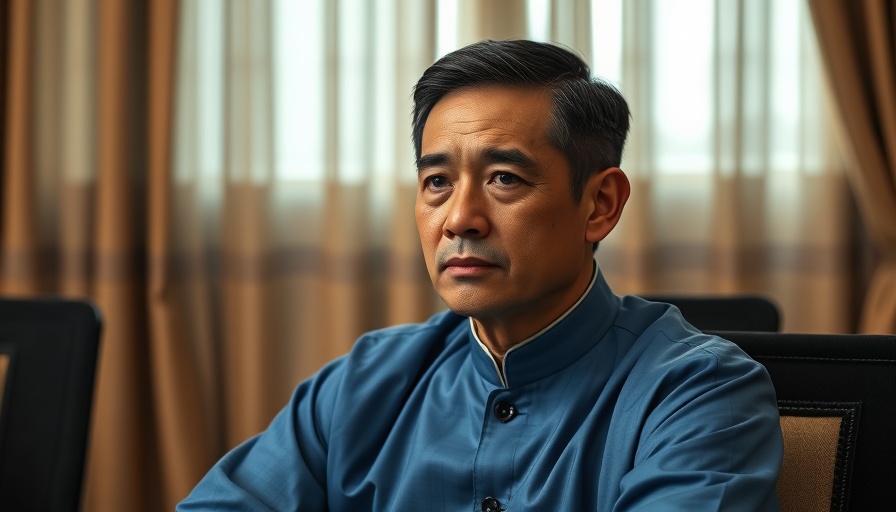
Geopolitical Turmoil: Understanding the Stakes in Iran
The global landscape is painted with anxiety as the anticipation of Iran's response to recent U.S. strikes looms larger. The situation is a stark reminder of the intricate web of geopolitical relationships, where actions reverberate much beyond the immediate context.
Historical Context: The Roots of Tension
Iran's tensions with the United States are deeply rooted in the past, particularly tracing back to the 1979 Iranian Revolution and the subsequent U.S. embassy hostage crisis. This historical lens offers insight into Iran's enduring resistance against perceived threats to its sovereignty. The ongoing cycle of retaliation further complicates the diplomatic engagement possibilities, likely compelling Iran to respond in unpredictable ways.
Surprising Elements in Iran’s Strategic Response
Political analysts suggest that Iran's reaction could embody both conventional and unconventional tactics. The nation’s leadership, historically adept at leveraging proxy forces across the Middle East, may opt for strategies that are not only aimed at direct retaliation but also at destabilizing American influence in the region.
International Reaction: Balancing Acts on the Global Stage
Global powers are caught in a balancing act as they navigate this precarious situation. Allies of the U.S., particularly within NATO, find themselves needing to support their partner while being cautious of triggering broader conflict. Strategic interests of each nation also play out through their reaction to the U.S.-Iran tension, wavering between calls for restraint and support for deterrent measures.
Implications for South Africa and Domestic Policy Dynamics
While this conflict may seem worlds apart from South African politics, the indirect repercussions resonate domestically. Economic trends, such as fluctuating energy prices tied to global conflicts, could influence the ongoing burdens of load shedding and economic recovery efforts within South Africa. Experts worry that instability overseas may hinder foreign investments crucial for the country’s growth trajectory.
Local Economic Considerations: Tying Global Politics to National Reality
With South Africa grappling with significant challenges, from economic recovery to unemployment rates, the international climate can have a domino effect. A spike in global oil prices due to heightened conflict could exacerbate the already alarming inflation rates. The need for strategic thinking in government policies is more apparent than ever as South African citizens brace for any ripple effects.
The Path Forward: Diplomatic Efforts vs. Military Actions
As tensions simmer, calls for diplomatic engagement become pivotal. Analysts urge for a recalibration of strategies, advocating dialogue over military posturing. This is a crucial lesson not only for international peace but also for local governance, where collaboration and transparency are essential to regain public trust and ensure effective governance.
Conclusion: Staying Informed and Active as Citizens
Understanding the interplay of international relations and local policy dynamics equips individuals with the insight to engage actively with ongoing developments. Given the interconnectedness of global events, staying informed about world affairs and their effects locally is imperative for every citizen.
 Add Row
Add Row  Add
Add 




Write A Comment